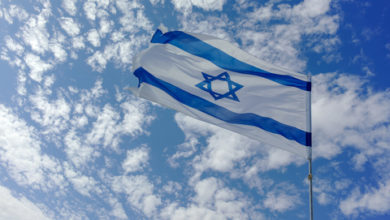He Who Responded to Elijah
“The whole nation saw, and they fell on their faces and said: Hashem is Elohim! Hashem is Elohim! Hashem is Elohim!” [Kings I 18:39] – The end of this week’s Haftarah. What did the nation mean by this highly emotional declaration? At first glance it might seem that they were trying to show their decision with respect to the challenge that Elijah had given them: “If G-d is Elohim, go after Him, and if it is Baal go after him” [18:21]. However, the fact that the people repeated their declaration twice implies – aside from their great enthusiasm – that they had reached a new depth of understanding after they had made their decision. That is, in addition to their realization that G-d and not Baal is “Elohim,” they gained a deeper understanding of the character of G-d’s revelation in His world.
What do we mean by this?
From the time that human beings became intelligent, they were challenged by remarkable dichotomy. On one hand they see the world of nature, neutral as it is, which follows immutable laws and has no morality. At the head of the system of nature man senses the existence of the Creator, and he calls this by the trait of “Elohim,” which is a name of G-d that shows how He acts through nature.
On the other hand, human beings sense that they have a soul within them and that they have an individual personality, they can choose between good and evil, and they are living creatures who have a free life. Man recognizes the Creator of his soul by the name yud-heh-vav-heh (often represented by the word “Hashem“), which indicates that the Holy One, Blessed be He, is the active force behind moral behavior.
Four approaches have been suggested in order to decrease the tension between the two different ways of seeing G-d. They are the following:
(1) – The method of the idol worshippers. They feel that the entire world is filled with personalities, deities, souls, and spirits. In biblical language we can say that for the pagan world “Everything is Hashem.”
(2) – This is the approach of the philosophers, who feel that everything is part of nature. Even our own personalities are nothing but an illusion. The world operates as a huge and apathetic machine. For them, “Everything is Elohim.”
(3) – This is the approach of the Jew from Amsterdam (Baruch Spinoza) – that the characteristic of Elohim is the sum total of all the instances of revelation. Even the moral soul is included in the grand scheme of nature. As far as he is concerned, “Elohim is Hashem.”
(4) – The outlook of the prophets, including Elijah on Mount Carmel. They revealed to us that “Hashem is Elohim” and not that “Elohim is Hashem.” There is an internal unity between nature and the soul, but it does not consist of absolute equality. Rather, morality takes precedence. (See Rabbi Chaim from Volozhin, “Nefesh Hachaim,” Part 3, Chapter 9, for an expansion of this concept).
The recognition that the Holy One, Blessed be He, operates in a moral way, that He prefers good over evil, is what made such an impression on the people gathered on Mount Carmel, when they saw that G-d is not interested in cruel rituals where the prophets of Baal “cut themselves as was their custom, with swords and spears, until their blood spurted out over them” [18:28]. They also saw that the Divine flames came down on an altar made of “twelve stones, the same as the number of tribes of the sons of Jacob” [18:31]. This showed the people the preference of the Torah for morality, which consists of a unity of values and joining the hearts of all the people together.
Source: “AS SHABBAT APPROACHES” – a biweekly column in Shabbat B’Shabbato (Zomet Institute) See: http://www.zomet.org.il/eng – Ki Tissa 5775, issue 1565.



